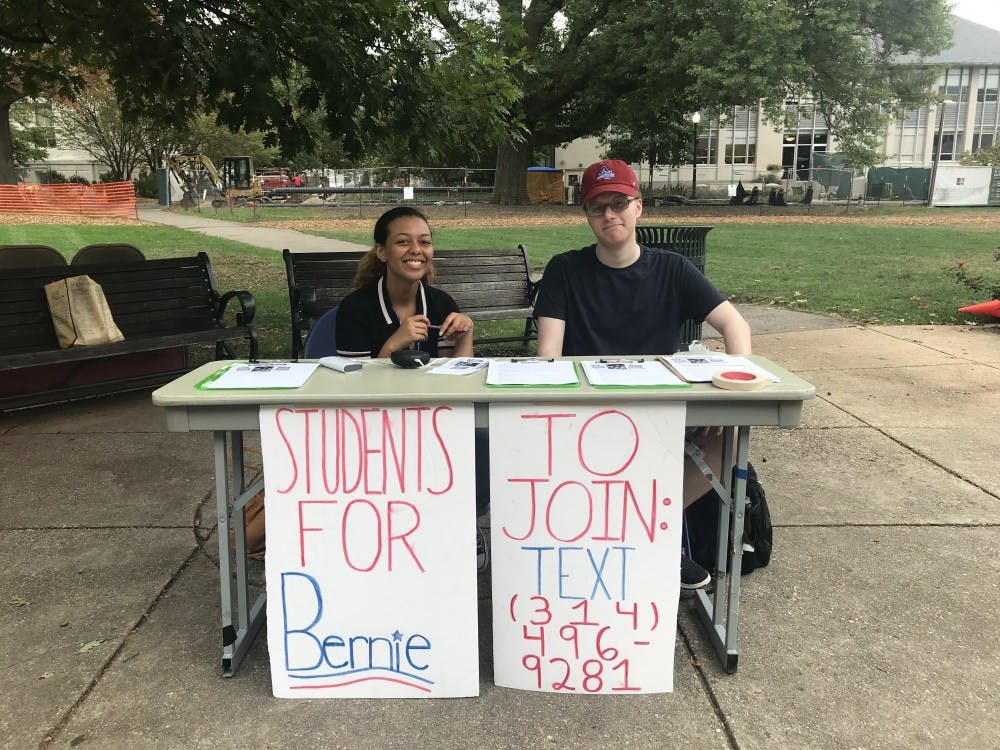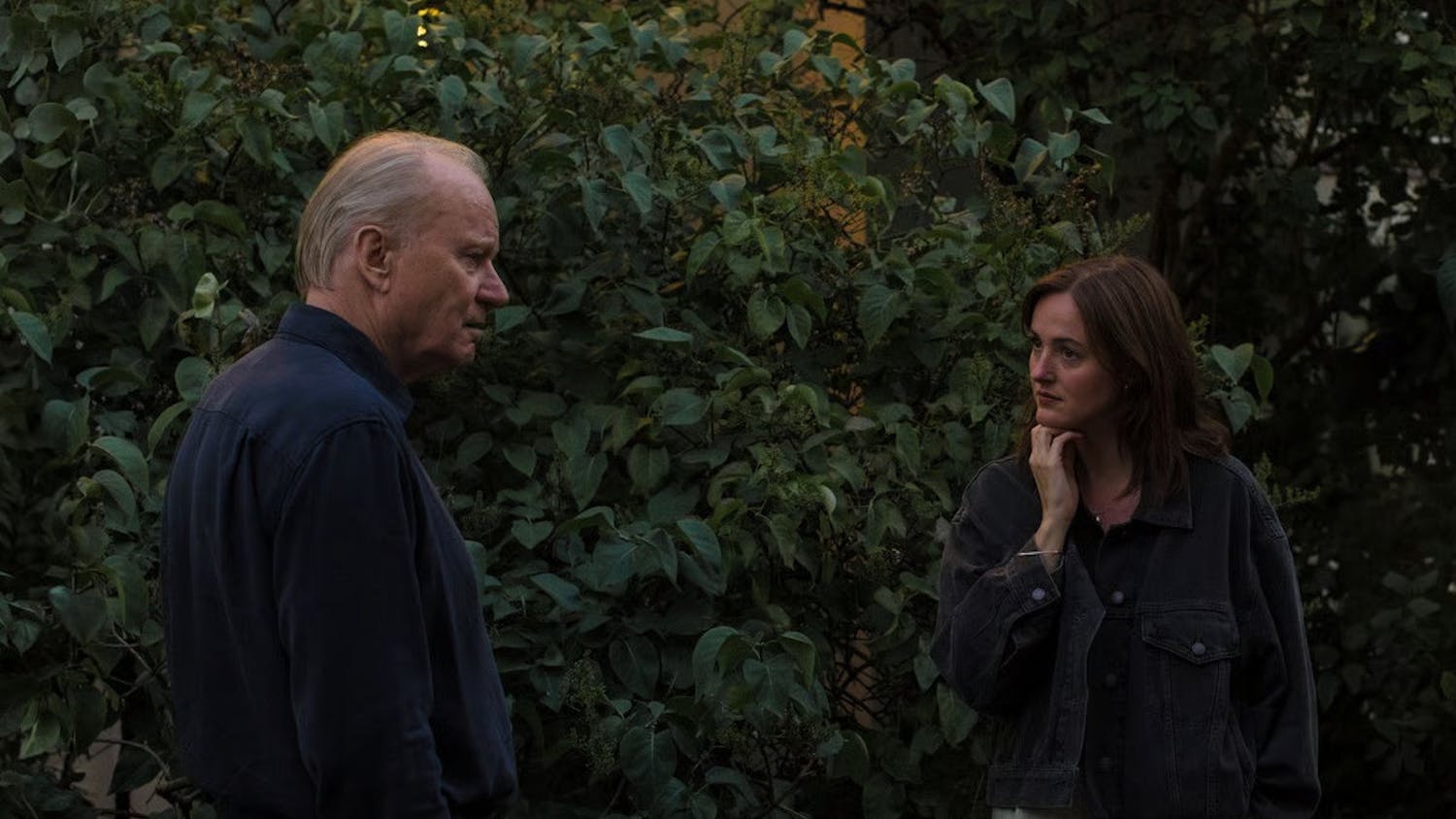American University’s student-run organizations have been preparing for the 2020 and off-year elections with get-out-the-vote campaigning. The College Democrats, College Republicans and Democratic presidential candidate student groups are all doing their part to mobilize their peers as part of a larger effort nationwide to increase turnout at the ballot box next November.
The AU Democrats have led many efforts to get out the vote for the off-year elections in Virginia, Louisiana and Mississippi, while also organizing multiple phone banks for special elections and gubernatorial elections in North Carolina and Kentucky, said Julia Larkin, the president of the AU Dems.
The AU Dems held phone banks for the North Carolina special election in the ninth congressional district, where they sent approximately 40,000 texts to potential voters in the D.C. The AU Dems also held phone banks for gubernatorial races in New Jersey and Kentucky. However, Virginia’s state elections were the AU Dems’ main focus.
“Virginia is a purple state,” Larkin said. “Republicans have control of both the House of Delegates and the Senate by two votes. This was a state that was decided by 100 votes or a coin flip, so it really matters more on how many doors you knock on when you’re out there on the ground. We’ve knocked on about 6,000 doors.”
Despite 2020 on the horizon, the AU Dems have remained largely focused on the off-year elections as they hold a large significance.
“Over the summer, Republicans passed abortions bans in multiple states,” Larkin said. “It woke the Democratic Party up – local politics do matter. If were to win back anything, it’s going to be the state legislatures because it’s state legislatures that decide a lot.”
After the elections, Larkin said they were pleased to see so many Democrats take over new seats.
"We now have a Democratic governor in Kentucky, a state President Trump won by 30 points back in 2016,” she said. “All 140 legislative seats were on the ballot and Democrats took full control of state government for the first time since 1994. The AU Dems helped to flip six seats and keep seven from turning red.”
For the AU Dems, future programming for the 2020 Presidential election will include voter registration, education regarding state’s primary rules and how to obtain absentee ballots.
Much like the AU Dems, the AU College Republicans have been working on campaigning for special congressional elections and state elections. Jordan Bell, president of the College Republicans, said members were involved in campaigns and phone banking for Dan Bishop, the winner of the North Carolina special congressional election, and Tim Hugo, candidate for reelection to the Virginia House of Delegates.
College Republicans phone banked for Congressman Bishop on campus and had the opportunity to phone bank at the Republican National Committee.
The approach to campaigning through phone banking or knocking on doors is dependent on the goal of the campaign students are volunteering for, said Thomas Kenna, College Republicans’ digital director and event logistics coordinator.
“It could be get-out-the-vote, encouraging people that were already going to vote for your candidate to show up,” Kenna said. “Or it could be persuasion, people that are independent or lean towards your candidate to vote for your candidate.”
Since there have been no Republican debates or considerable challenges to President Donald Trump, the College Republicans do not currently have any campaigning planned around the presidential election. However, Bell explained that as impeachment plays out in Congress, the organization would consider including programming related to potential debates and primaries.
“If a serious Republican primary were to play out, I don’t think we would necessarily endorse a candidate, but we would have events pertaining to it, whether that be debate watch parties, forums, or casual events where students can talk about why they support a candidate,” Bell said.
Candidate groups on campus, despite their support for their chosen primary candidate, have also focused their operations on get-out-the-vote efforts. Recognizing the historically low turnout rates among students, these groups hope to boost their candidates’ chances by boosting the youth vote.
Elliot Williams, co-founder of the Students for Bernie organization at AU, which supports Democratic presidential candidate Bernie Sanders, emphasized the importance of mobilizing as many college students as possible to the ballot box.
“We're planning to help each and every person who's not registered to vote,” Williams said. “We’ll get them registered regardless of which candidate they end up supporting because we believe in expanding access to the ballot.”
Besides AU Students for Bernie, students have formed AU for Biden, AU Students for Warren, Pete for American, AU Booker’s Crew and AU Students for Kamala on Campus.
Unlike the AU Dems and AU College Republicans, candidate groups are unable to focus on local elections, instead taking a national focus, making their registration campaigns especially difficult. With students from all 50 states, organizers have to take care to distribute information that matches each student’s election dates and registration deadlines.
For some of these groups, election organizing goes beyond registration and canvassing — they want it to become part of the campus culture.
“We're very interested in starting conversations on our campus about who students are going to support in this primary, regardless of whether it's our candidate,” Williams said.
Politically active students play a significant role on campus as they have the opportunity to embrace the current political climate and possibly change it for the better, according to Bell.
“I think we here at AU have a role to play just within ourselves to localize the issues and come together and find new places for common ground,” Bell said. “I think we all kind of have a role to play in toning down the rhetoric and looking to accomplish issues as future leaders of the country.”
This article originally appeared in The Eagle's December 2019 print edition.





